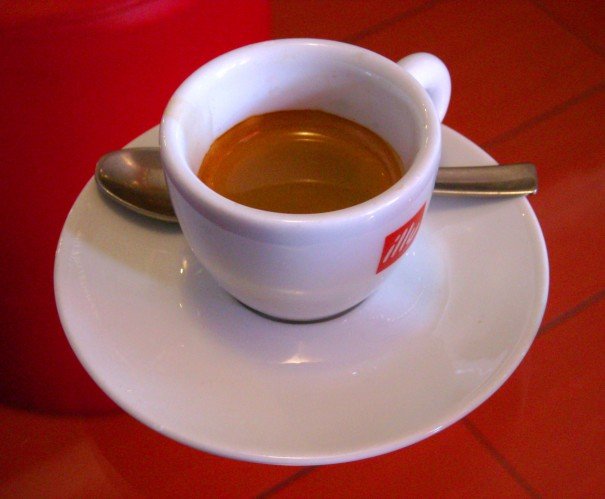
Espresso and a Biscuit Leaves Much to be Desired

Espresso and a Biscuit Leaves Much to be Desired
Butter Biscuits in Perugia
I woke up on the first morning of my three-week visit to Perugia to find my boyfriend hovering over me, a cup of espresso in one hand, a dry, crumbly butter biscuit in the other. “Darling, I’ve brought you breakfast,” he said. That’s when I knew the trip had been a mistake.
I had come to Perugia chasing a dream; the dream that I would have a normal relationship with my Italian boyfriend, who had previously been my Italian teacher in college. Of course, to me, “normal in Italy” was a classic film: Audrey Hepburn and Gregory Peck on a scooter causing traffic accidents in Rome, Katherine Hepburn getting lost in the streets of Venice and eventually finding Rossano Brazzi. Yet here I was, in a spare room in my boyfriend’s house, which also happened to be his mother’s house, and he was holding out a single cookie to me, and unironically calling it breakfast. This, I do believe, was the beginning of the end.
As much as Italian culture is centered on food, the Italians have always had a somewhat complicated relationship with breakfast. That is, if they have one at all. I, on the other hand, was in the middle of a complicated relationship, involved with a man who was clearly still in love with someone else. (Although, I reasoned as I nibbled away at the dry cookie, my mouth like sandpaper, he had made this clear from the beginning.)
Italians see that first nip of starch and sugar as a way of jolting their appetite—setting the gears going on the day’s bodily functions, so to speak—and tiding them over until the midday meal, traditionally the most involved and extensive of the day, if you’re an Italian who knows what’s good for you. What’s more, breakfast is a meal best eaten on-the-go: making short work of a cup of espresso at a stand-up counter, the sample of something sweet only meant to form a comfortable, pillowy bed in the stomach for the bitter liquid to lie down upon. No breakfast in bed for the Italians, it seemed, and certainly no brunch. It made me wonder how Italians, despite their decades-long reputation for charm, could possibly woo a lover the morning after. Why would you want to stay past breakfast if breakfast was so disappointing?
My relationship with this particular Italian couldn’t seem to get past breakfast either, leaving me with a vague sense that I was still waiting around for something. Perhaps if I took two minutes alone to eat that cookie and drink that espresso, then followed him into the kitchen, I would open the door to a table full of prosciutto e formaggi, uove e pane, and to him chuckling as he told me it had all been un bello scherzo! Maybe if I was lucky, his mother, who had chastised me one too many times for not doing the dishes enough, would have already left the house. We would finally have the chance to share the breakfast we were always meant to have, and I would be able to show him, over heaping platefuls of all the good stuff I was sure he was hiding somewhere in the house, that I wanted there to be many more breakfasts ahead.
That was nearly ten years ago, and I eat breakfast in Germany now. It’s a country where people see the first meal of the day as an occasion to display every jam jar and honey pot they have in the house, as well as three kinds of cheese and all the fresh rolls of the day. Breakfast in Germany may not be quite as seductive—it may not give you but a single bite of something sweet and leave you wanting more—but it is honest, and it feels like home. And if I happen to feel nostalgic about espresso with a cookie, I can still have it, for dessert.